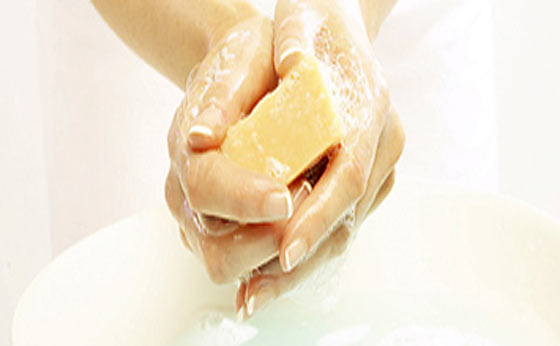Do You Need Hot Water To Wash Your Hands And Kill Germs?

Keeping hands clean is one of the best ways to prevent the spread of infection and illness. Chances are that what you think you know about hand washing… might be wrong…
During cold and flu season, people are especially concerned about germs, and avoiding them. People in the United States typically wash their hands seven times a day, and most do it at a much higher temperature than necessary to kill germs and most probably do not wash long enough.
It is true that heat kills bacteria, however the hot water temperature necessary to kill them would be far too hot for you to tolerate.
To disinfect water for drinking, boiling water at 212°F will kill most pathogens. The hot water temperature in your hot water tank at home is typically set around 120°F, a temperature which will scald the skin if left on too long, and a temperature which may only kill ‘some’ pathogens under sustained scalding contact.
Amanda R. Carrico, a research professor at Vanderbilt in Tennessee said to the Daily News of National Geographic, that her team found “no evidence that using hot water that a person could stand would have any benefit in killing bacteria.” Even water as cold as 40°F appeared to reduce bacteria as well as hotter water, if hands were scrubbed, rinsed, and dried properly.
Most people believe that using hot water is more effective than warm, room temperature, or cold water, when it comes to killing germs while washing clothes or hands. There is a strong cognitive connection between water temperature and hygiene, although not entirely accurate. Hot water is actually more associated with comfort than with health.
The right way to wash your hands
Wet your hands with clean, running water (warm or cold), turn off the tap, and apply soap.
Lather your hands by rubbing them together with the soap. Be sure to lather the backs of your hands, between your fingers, and under your nails.
Scrub your hands for at least 20 seconds. Need a timer? Count 1,001 – 1,002 – etc.
Rinse your hands well under clean, running water.
Dry your hands using a clean towel or air dry them.
When you should wash your hands
Before, during, and after preparing food
Before eating food
Before and after caring for someone who is sick
Before and after treating a cut or wound
After using the toilet
After changing diapers or cleaning up a child who has used the toilet
After blowing your nose, coughing, or sneezing
After touching an animal, animal feed, or animal waste
After touching garbage
As you touch people, surfaces and objects throughout the day, you accumulate germs on your hands. In turn, you can infect yourself with these germs by touching your eyes, nose or mouth. Although it’s impossible to keep your hands germ-free, washing your hands frequently can help limit the transfer of bacteria, viruses and other microbes.
Keep in mind that antibacterial soap is no more effective at killing germs than is regular soap. Using antibacterial soap may even lead to the development of bacteria that are resistant to the product’s antimicrobial agents — making it harder to kill these germs in the future.
